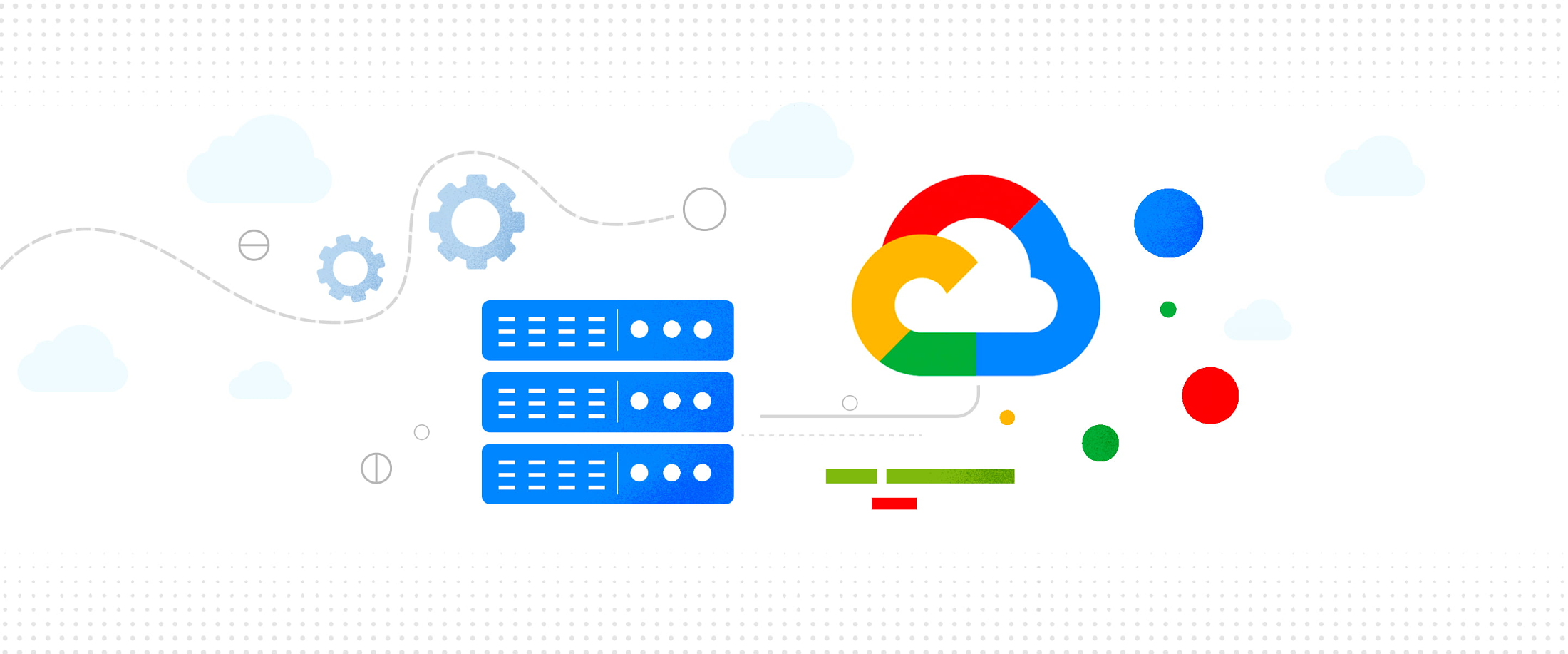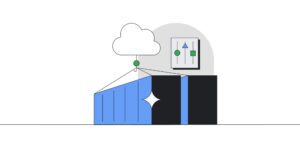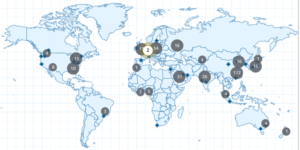
[ad_1]
Over the previous few months, I made the selection to maneuver from the AWS ecosystem to Google Cloud — each nice clouds! — and I believe it’s made me a stronger, extra well-rounded technologist.
However I’m only one information level in a giant pattern. Multicloud is an inevitability in medium-to-large organizations at this level, as I and others have been saying for awhile now. As IT footprints get extra complicated, you need to anticipate to see a broader vary of cloud supplier necessities exhibiting up the place you’re employed and interview. Prepared or not, multicloud is occurring.
In actual fact, Hashicorp’s current State of Cloud Technique Survey discovered 76% of employers are already utilizing a number of clouds in some vogue, with greater than 50% flagging lack of abilities amongst their workers as a prime problem to survival within the cloud.
That spells alternative for you as an engineer. However with restricted time and bandwidth, the place do you place your bets to make sure that you’re staying aggressive on this ever-cloudier world?
You may decide one cloud to get good at and keep it up; that’s a wonderfully legitimate profession guess. (And when you do guess your profession on one cloud, you need to completely decide Google Cloud! I’ve causes!) However on this put up I’m arguing that increasing your scope of professional fluency to a minimum of two of the three main US cloud suppliers (Google Cloud, AWS, Microsoft Azure) opens up some distinctive, future-optimized profession choices.
What do I imply by ‘multicloud fluency’?
For the sake of this dialogue, I’m defining “multicloud fluency” as a degree of familiarity with every cloud that will allow you to, say, go the flagship professional-level certification supplied by that cloud supplier–for instance, Google Cloud’s Skilled Cloud Architect certification or AWS’s Licensed Options Architect Skilled. Notably, I’m not saying that multicloud fluency implies expertise sustaining manufacturing workloads on multiple cloud, and I’ll make clear why in a minute.
How does multicloud fluency make you a greater cloud engineer?
I requested the cloud group on Twitter to provide me some examples of how data of a number of clouds has helped their careers, and dozens of engineers responded with a great discussion.
Seems that even when you by no means incorporate providers from a number of clouds in the identical mission — and many individuals don’t! — there’s nonetheless worth in understanding how the opposite cloud lives.
Studying the lingua franca of cloud
I like this framing of the totally different cloud suppliers as “Romance languages” — as with human languages in the identical household tree, clouds share most of the similar conceptual constructing blocks. Adults study primarily by analogy to issues we’ve already encountered. Simply as studying one programming language makes it simpler to study extra, studying one cloud reduces your ramp-up time on others.
Extra than simply serving to you take up new data quicker, understanding the strengths and tradeoffs of various cloud suppliers can help you make the best choice of services and architectures for new projects. I truly keep in mind scuffling with this at instances once I labored for a consulting store that targeted completely on AWS. A shopper would ask “What if we did this on Azure?” and I actually didn’t have the context to make certain. However when you’ve got a stable foundational understanding of the panorama throughout the main suppliers, you may really feel assured — and encourage confidence! — in your technical decisions.
Turning into a unicorn
To be clear, this degree of consciousness isn’t widespread amongst engineering expertise. That’s why folks with multicloud chops are sometimes thought of “unicorns” within the hiring market. Need to stand out in 2022? Present that you simply’re conversant in additional than only one cloud. On the very least, it expands the marketplace for your abilities to incorporate corporations that concentrate on every of the clouds you understand.
Taking that concept to its excessive, a number of the greatest advocates for the worth of a multicloud resumé are consultants, which is sensible provided that they usually work on totally different clouds relying on the shopper mission of the week. Lynn Langit, an unbiased marketing consultant and one of many cloud technologists I most respect, estimates that she spends about 40% of her consulting time on Google Cloud, 40% on AWS, and 20% on Azure. Fluency throughout suppliers lets her choose the engagements which can be most fascinating to her and permits her to advocate the expertise that gives the best worth.
However don’t get me improper: multicloud abilities will also be nice on your profession development when you work on an in-house engineering workforce. As corporations’ cloud posture turns into extra complicated, they want technical leaders and decision-makers who comprehend their full cloud footprint. Need to change into a principal engineer or engineering supervisor at a mid-to-large-sized enterprise or rising startup? These roles require an organization-wide understanding of your expertise panorama, and that’s most likely going to incorporate providers from multiple cloud.
The way to multicloud-ify your profession
We’ve established that some familiarity with a number of clouds expands your profession choices. However studying one cloud can appear daunting sufficient, particularly if it’s not a part of your present day job. How do you chart a multicloud profession path that doesn’t finish with you spreading your self too skinny to be efficient at something?
Get good on the core ideas
Sure, all of the clouds are totally different. However they share most of the similar fundamental approaches to IAM, digital networking, excessive availability, and extra. These are transportable fundamentals which you can transfer between clouds as wanted. In case you’re new to cloud, an associate-level options architect certification will assist you cowl the fundamentals. Be certain that to do hands-on labs to assist make the ideas actual, although — we study way more by doing than by studying.
Go deep in your major cloud
Fundamentals apart, it’s actually essential that you’ve a local degree of fluency in a single cloud supplier. You will have the chance to choose up multicloud abilities on the job, however to get a cloud engineering function you’re virtually actually going to wish to point out important experience on a particular cloud.
Notice: In case you’re model new to cloud and undecided which supplier to start out with, my biased (however knowledgeable) advice is to provide Google Cloud a strive. It has a free tier that gained’t invoice you till you give permission, and the nifty mission construction makes it very easy to spin up and tear down totally different check environments.
It’s price noting that engineering groups specialize, too; everyone has free ends, however they’ll usually attempt to standardize on one cloud supplier as a lot as they’ll. In case you work on such a workforce, reap the benefits of the chance to get as a lot hands-on expertise with their most well-liked cloud as doable.
Go broad in your secondary cloud
You will have heard of the idea of T-shaped abilities. A well-rounded developer is broadly conversant in a spread of related applied sciences (the horizontal a part of the “T”), and an professional in a deep, particular area of interest. You’ll be able to consider your abilities in your major cloud supplier because the deep a part of your “T”. (Really, let’s be actual — even a single cloud has too many providers for anyone individual to carry of their heads at an professional degree. Your area of interest is more likely to be a subset of your major cloud’s providers: say, safety or information.)
We might put this a unique method: construct in your major cloud, get licensed in your secondary. This offers you hirable experience in your “native” cloud and situational consciousness of the remainder of the market. As alternatives come as much as construct on that secondary cloud, you’ll be prepared.
I ought to add that a number of folks have emphasised to me that they sense diminishing returns when maintaining with multiple secondary cloud. In some unspecified time in the future the cognitive switching will get overwhelming and the extra studying doesn’t add a lot worth. Maybe the candy spot appears like this: 1< 2 > three.
Guess on cloud-native providers and multicloud tooling
The entire level of constructing on the cloud is to reap the benefits of what the cloud does greatest — and often meaning leveraging highly effective, native managed providers like Spanner and Vertex AI.
Alternatively, the cloud ecosystem has now matured to the purpose the place improbable, open-source multicloud administration tooling for wrangling these provider-specific providers is available. (Doing containers on cloud? Most likely utilizing Kubernetes! Searching for a DevOps function? The workforce might be on the lookout for Terraform experience it doesn’t matter what cloud they main on.) By investing studying time in a few of these cross-cloud instruments, you open much more doorways to construct fascinating issues with the workforce of your alternative.
Multicloud and also you
Once I moved into the Google Cloud world after years of being an AWS Hero, I made certain to comply with a brand new set of Google Cloud voices like Stephanie Wong and Richard Seroter. However I didn’t ghost my AWS-using mates, both! I’m a greater technologist (and a greater group member) once I sustain with each ecosystems.
“However I can hardly sustain with the firehose of options and updates coming from Cloud A. How will I have the ability to add in Cloud B?” Settle for which you can’t know all the things. No person does. Use your broad data of cloud fundamentals as an index, learn the docs regularly for providers that you simply use loads, and hold your consciousness of your secondary cloud recent:
-
Comply with just a few trusted voices who might help you filter the sign from the noise
-
Attend a digital occasion as soon as 1 / 4 or so; it’s by no means been simpler to entry stay studying
-
Construct a weekend aspect mission that places your abilities into follow
Finally, you (not your workforce or their expertise decisions!) are liable for the trajectory of your profession. If this put up has raised profession questions that I might help reply, please be at liberty to hit me up on Twitter. Let’s proceed the dialog.
[ad_2]
Source link





